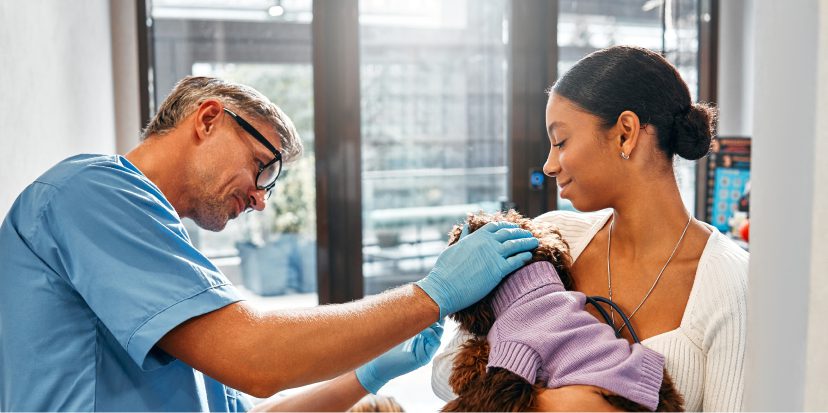FAQ
Soak dog with water. Use a mixture of 1 quart hydrogen peroxide, 1/2 cup baking soda, 1tsp mild dish detergent and 1tsp human shampoo. Lather well and leave on for 5 minutes. Rinse well. Repeat. Do not put on the face.
If the spray got into your dogs eyes/mouth rinse well with fresh cool water or an eyewash. If you are still concerned about your pet or think they have been injured by the skunk please call us and bring your pet in AFTER you have followed the instructions above.
Alternatively we sell Skunk Remover Shampoo and Eye Wash for you to use at home.
Please also see our Pet Health Library section of the website for more information.
See What Makes Us Different

Open 24/7/365
We know that an emergency can happen at any time and that is why we offer 24-hour/365 day emergency care for dogs, cats, horses, farm animals & exotic pets.